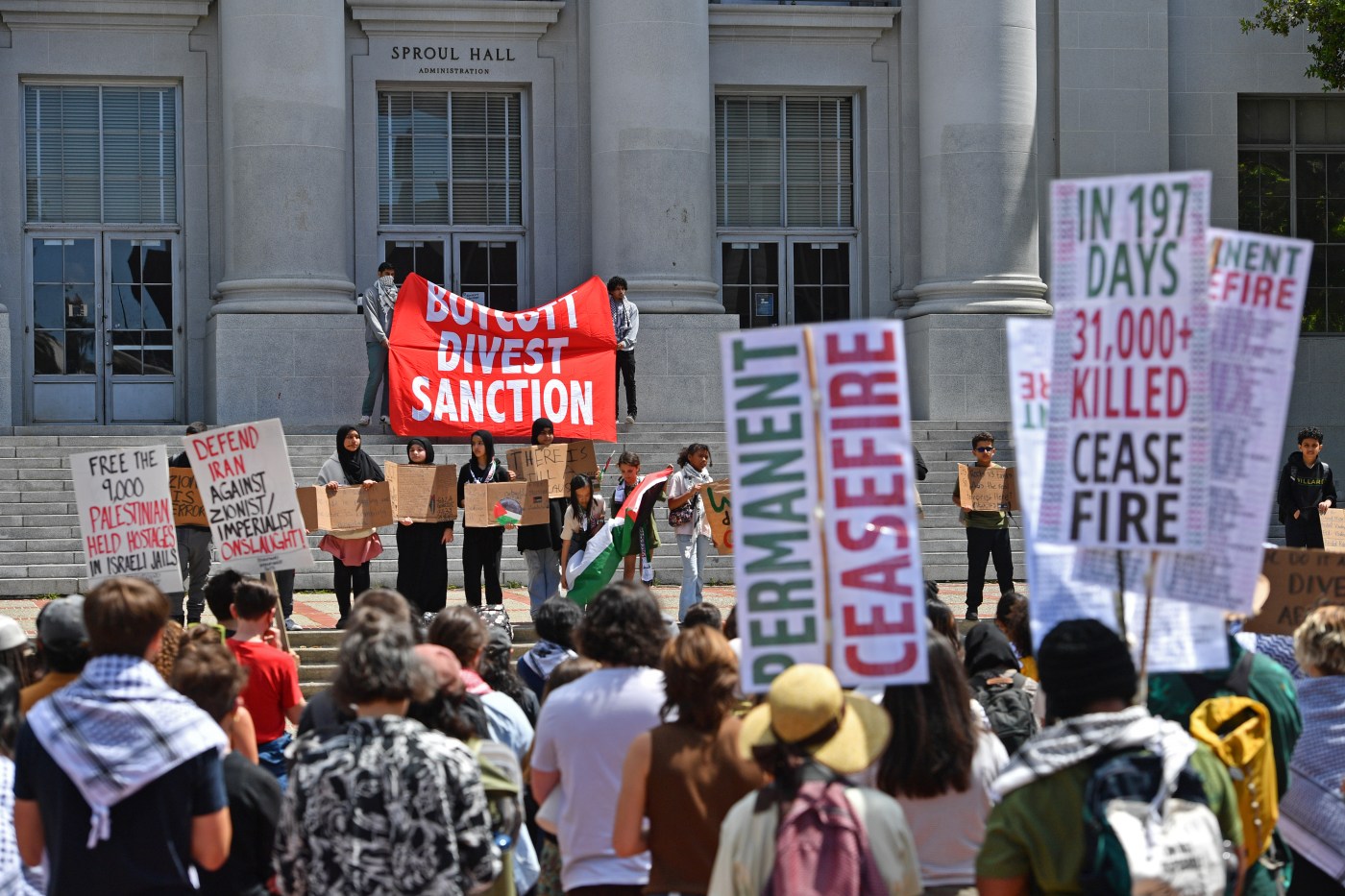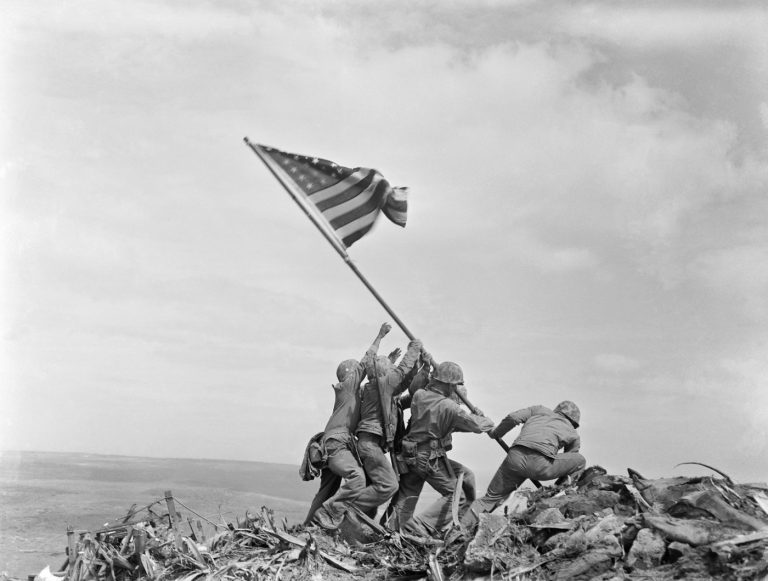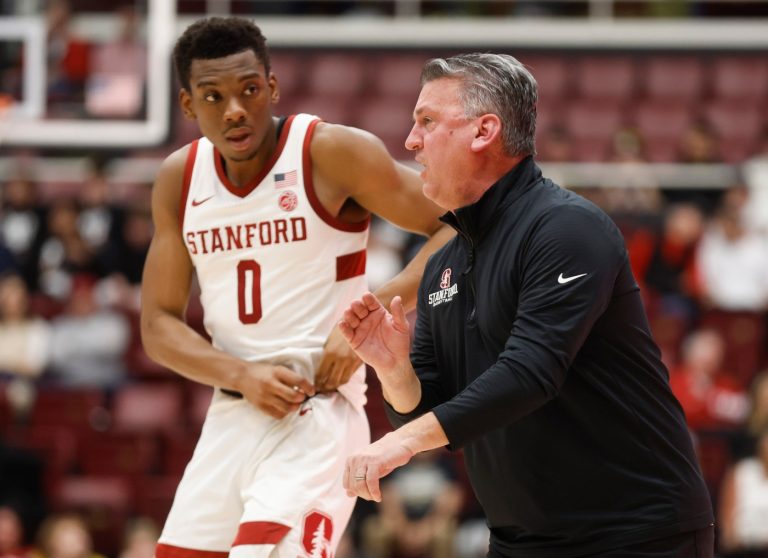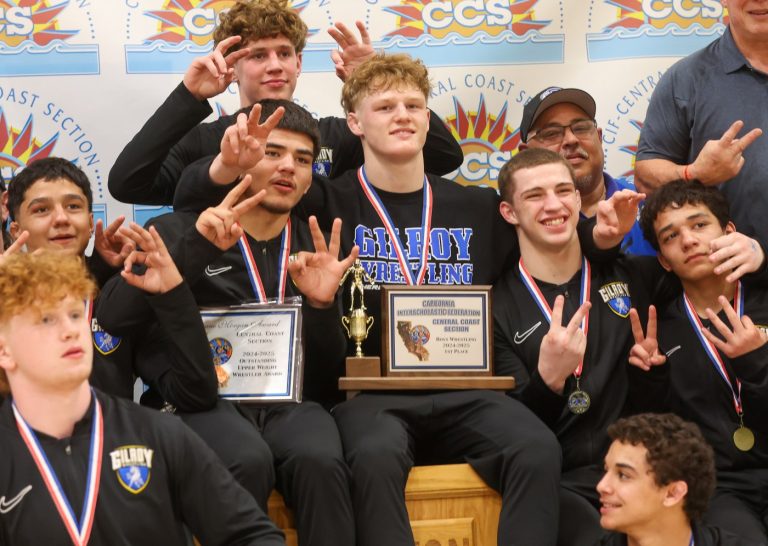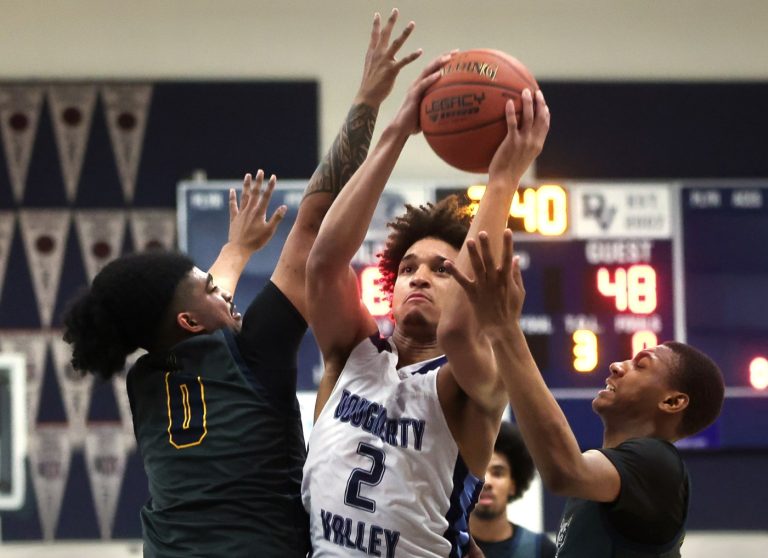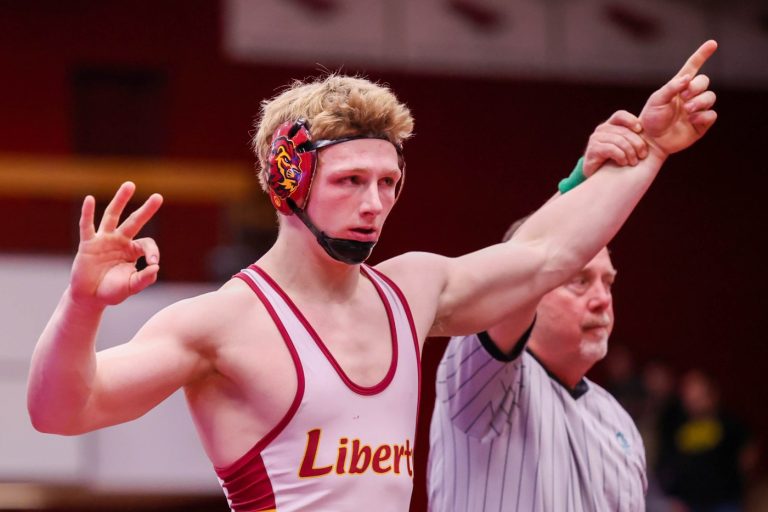Pro-Palestinian students and their allies set up about 15 tents on the steps of UC Berkeley’s Sproul Plaza on Monday afternoon, vowing to stay put until the university system officially calls for an end to the deadly Israel-Hamas war, cuts its study-abroad program with Israel and divests from companies with ties to the country.
Some of the several hundred protesters, many wearing the traditional Palestinian keffiyeh around their heads and some waving “boycott, divest, sanction” signs, said they plan to camp out until the university system meets their demands and challenged police to arrest them. By late afternoon, about 50-100 people were sitting, reading poetry and chatting.
“We’ve been out here, and we’ll continue to be out here,” said Matt Kovac, a spokesman for UC Berkeley Divest Coalition, which organized the midday rally. “I don’t see mobilization stopping until the U.S. and UCs begin to take this seriously.”
In a statement Monday, the coalition that represents 75 student, staff, faculty and alumni organizations calling for UC to divest from companies doing business with Israel, said the University of California system invests in more than $2 billion in companies that supply arms.
UC Berkeley spokesman Dan Mogulof said there are no plans to change the university’s investment policies and practices, and that with three weeks left in the semester, Berkeley is prioritizing students’ academic interests over disruptions on campus.
“We will take the steps necessary to ensure the protest does not disrupt the university’s operations,” Mogulof said.
The Israel-Hamas war, now in its seventh month, began after Hamas militants breached Israel’s border defenses on Oct. 7, 2023, rampaged through communities unchallenged for hours, killing about 1,200 people, most of them civilians, while taking roughly 250 hostages back to Gaza. It was the deadliest assault in Israel’s history. Hamas has been designated as a terrorist organization by the United States, Canada and the European Union.
Retaliatory airstrikes by Israel have since killed more than 34,000 Palestinians, according to Palestinian health officials, at least two-thirds of them children and women. It has devastated Gaza’s two largest cities and left a swath of destruction in the narrow, 25-mile-long territory governed since 2007 by Hamas. Around 80% of the territory’s population have fled to other parts of the besieged coastal enclave.
The United States is on track to approve $26 billion in additional aid to Israel, its close ally. The aid package approved by the U.S. House of Representatives on Saturday includes around $9 billion in humanitarian assistance for Gaza, which experts say is on the brink of famine, and $4 billion for Israel’s missile defense. The U.S. Senate could pass the package as soon as Tuesday, and President Joe Biden has promised to sign it immediately.
As the war rages, ideological divides have collided at college campuses across the country.
Columbia University canceled in-person classes on Monday after protesters rallied throughout the weekend at the Ivy League school’s New York City campus, where police last week arrested more than 100 pro-Palestinian demonstrators who had set up an encampment.
Since those arrests, pro-Palestinian demonstrators have set up encampments on other campuses around the country, including at the University of Michigan, the Massachusetts Institute of Technology and Yale University, where several dozen protesters were arrested Monday morning after officials said they defied warnings to leave.
Stanford University in February shut down a similar demonstration after 120 days in which pro-Palestinian protesters had camped out at White Plaza starting Oct. 20. Eighteen pro-Palestinian protesters who disrupted a family weekend event at the campus in February were arrested and issued misdemeanor citations, the Stanford Daily reported.
UC Berkeley and other universities are under scrutiny from Congress, where lawmakers are investigating complaints about anti-semitism and the safety of Jewish students.
Monday’s protest at Berkeley comes just two months after a campus event featuring a speaker from Israel was canceled and its attendees escorted to safety after some 200 protesters surrounded Zellerbach Playhouse and broke down the doors, according to university officials. University chancellors said those actions of the protesters violated “some of our most fundamental values.”
Ori Rabina, one of a handful of Jewish students observing the protest, said he wants to believe that the protest was not held intentionally on Passover, one of Judaism’s holiest observances, which this year begins at sundown April 22.
The Jewish students from Tikvah: Students for Israel and Students Supporting Israel hung back and largely kept to themselves during the event. Rabina said demonstrators have a right to gather and advocate for their cause, including camping out on campus. He asserted that pro-Palestinian students and Jewish and Zionist students agree on wanting the violence in Gaza to end.
Tyler Gregory, CEO of the Jewish Community Relations Council, said he also didn’t believe the timing of the protest was intentional, but it would have an impact.
“People were already going into Seder ready to talk about Columbia (University). Now people are really worried about whether (the UC Berkeley demonstration) is going to stay peaceful or not,” Gregory said. “There’s just a heightened moment of fear because of what happened in Columbia.”
The protesters said their rally also comes amid escalating repression of pro-Palestine speech at UCLA and Pomona College in Southern California.
The demonstrators called their protest site “Free Palestine Camp,” chanted “disclose, divest, we will not stop, we will not rest,” and “1,2,3,4 occupation has to go … 5,6,7,8 Israel is a terrorist state,” and played recordings of what they said was a noise similar to one Gazans hear from Israeli drones overhead.
UC Berkeley law student Malak Afaneh speaks to a large crowd of pro-Palestinian protesters during a planned protest on the campus of UC Berkeley in Berkeley, Calif., on Monday, April 22, 2024. Hundreds of pro-Palestinian protesters staged a demonstration in front of Sproul Hall where they set up a tent encampment and are demanding a permanent cease-fire in the war between Israel and Gaza. (Jose Carlos Fajardo/Bay Area News Group)
Berkeley Law student Malak Afaneh gave the speech she was stopped from giving last week when she and other protesters were asked to leave a backyard lunch hosted by Berkeley Law Dean Erwin Chemerinsky.
“I will keep shouting this speech from the rooftops until Palestine is free,” Afaneh said Monday.
The Associated Press contributed to this report.
